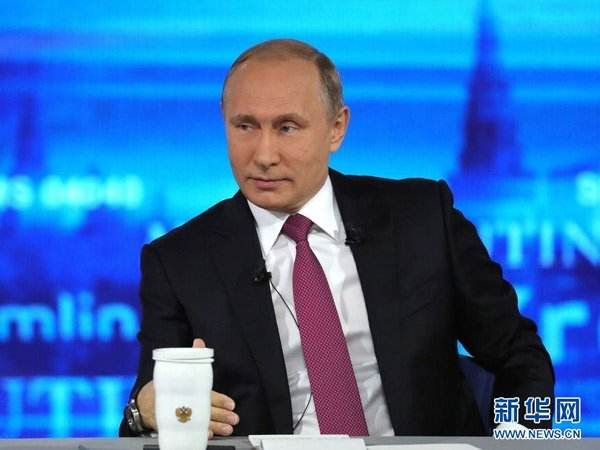Putin's power, then and now
- By Sajjad Malik
 0 Comment(s)
0 Comment(s) Print
Print E-mail China.org.cn, May 17, 2018
E-mail China.org.cn, May 17, 2018

Vladimir Putin has taken the oath of office for a record fourth time to launch a six-year presidential term that will see him safely ensconced as the head of Russia until 2024. He strengthened his position by winning a thumping victory and getting nearly 77 percent of the vote in the election held in March.
The 65-year-old leader is basking in the sunshine of glory enjoyed by no one in modern Russia since Josef Stalin, whose iron rule transformed the economy, society, defense and politics of the country. Putin had to pick up the pieces of a fragmented country and work hard to make it great once again.
At the start of his newest term, Putin has no rival to challenge his authority or style of government, a semi-democratic model in which a leader is appointed through a carefully regulated electoral process. The democratic part of the system is more relevant during elections.
What follows is often personal rule. It revolves around a close group of loyalists who are not only given key positions but also sometimes get away with profitable financial deals, and garner enormous wealth and influence in the process.
Putin's rule can be divided into two parts. The first part includes both his tenure as president from 2000 to 2008 and as prime minister from 2008 to 2012. He used his authority during this period to strengthen the economy and crush the militancy that had plagued Russia's Caucasus region in the decade following the disintegration of USSR.
The emphasis was to fix internal fissures and weaknesses to stop any further loss of territory. Putin was highly successful in this period, and not only turned around the economy but also eliminated militancy to a large extent.
The second part started in 2012, when Putin became president for the third time. In this period he had the advantage of time, as presidential term lengths had been extended from four years to six by then-president Dmitry Medvedev in 2008. Other advantages Putin had at the start of the third term, included a strong economy and public support due to which he won the elections.
Putin used his popularity at home to crush internal dissent and expand Russia's international reach. Again he achieved phenomenal success. The high point of his rule was the annexation of Crimea in 2014. He went ahead despite immense international opposition and declared the region to be an integral part of the country.
The previous 18 years of Putin's power are an era of uncontested rise. But it was not just the rise of an individual -- Russia as a country and Russians as a nation shared the empowerment with him. This may be the reason for his popularity at home.
Using his strong base, Putin not only challenged the U.S.-led Western bloc on the issue of Ukraine but also wrote new rules of engagement in Syria. His support turned the tide in favor of Syrian President Bashar Assad.
If the story of Russian meddling in the 2016 U.S. election is correct, then Putin's cyber power could be unparalleled. To use the internet to influence the outcome of a superpower's presidential election is not an ordinary thing, irrespective of its moral and political aspects.
Despite successes in past, Putin's fourth term may not be a "free ride," or free of challenges. First, he needs to think of new ways to further strengthen the economy in the face of sanctions and increasing hostility with the West.
Innovation is the buzzword of the day, and only nations that are leaders in technological innovation will be ahead of others in the next couple of decades. Russia faces tough competition in this field not only from the traditional rivals but also from the Asian giants.
Second, Putin should also start working on grooming a successor if he plans to hang up his boots in 2024. A successful political transition is as important as achieving economic and political stability.
Third, he should also try to manage tensions with the United States. To his advantage, American President Donald Trump is keen to listen to him, even if it means ignoring domestic pressures. Putin should also use links with the leadership in Germany and France to rebuild relations with Europe. It will be good to avoid unnecessary tensions that would sap away vital energies and resources.
Apart from these challenges, Putin should play the role of a peacemaker in Syria after achieving strategic objectives. Equally important will be the Russian role in saving the Iranian nuclear deal and bringing peace to the Korean peninsula.
In conclusion I can say that Putin during his fourth term would have to work really hard to achieve steady economic growth, smooth political transition and tension-free ties with the leading world powers.
Sajjad Malik is a columnist with China.org.cn. For more information please visit:
http://www.china.org.cn/opinion/SajjadMalik.htm
Opinion articles reflect the views of their authors, not necessarily those of China.org.cn.






Go to Forum >>0 Comment(s)